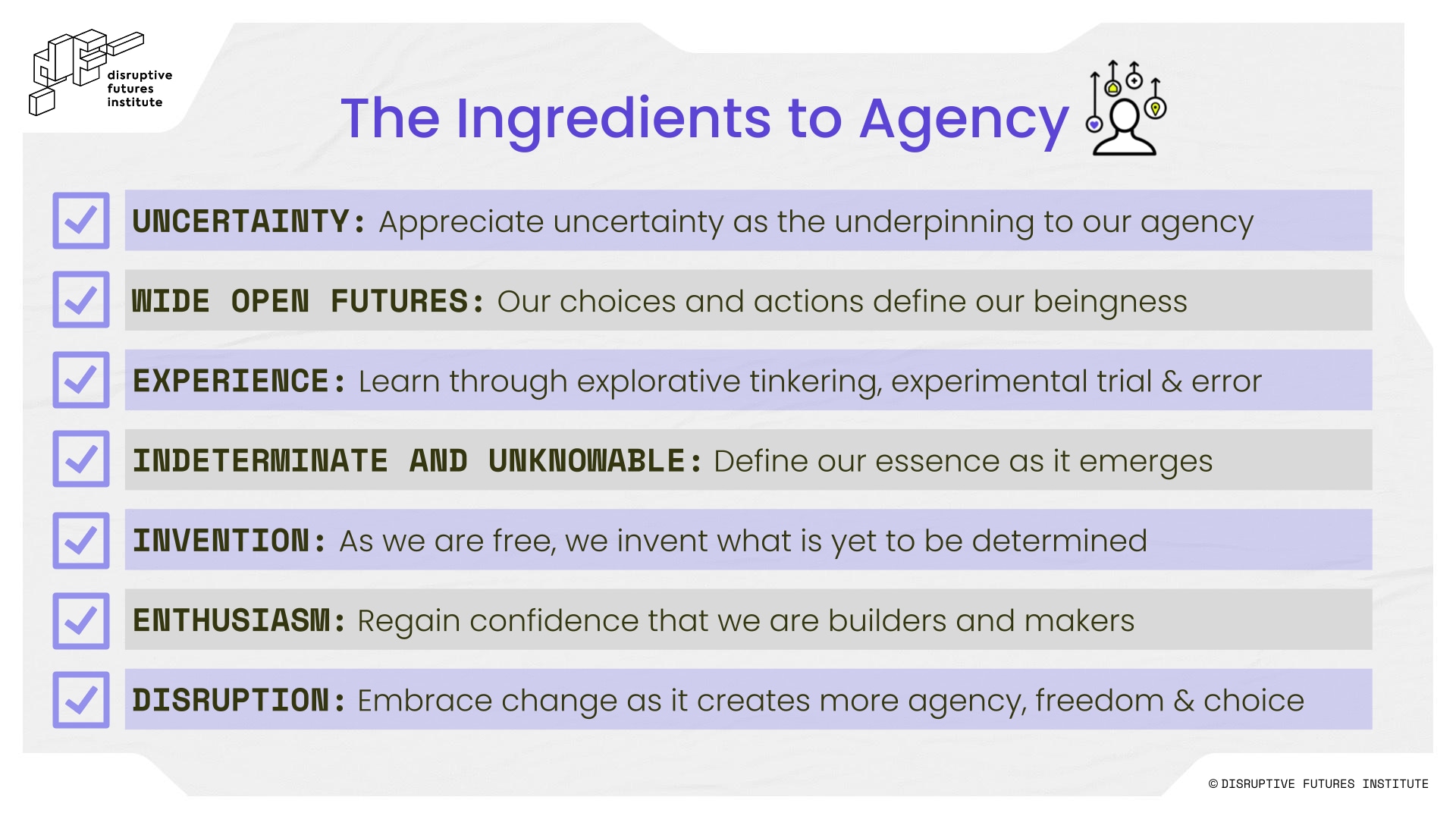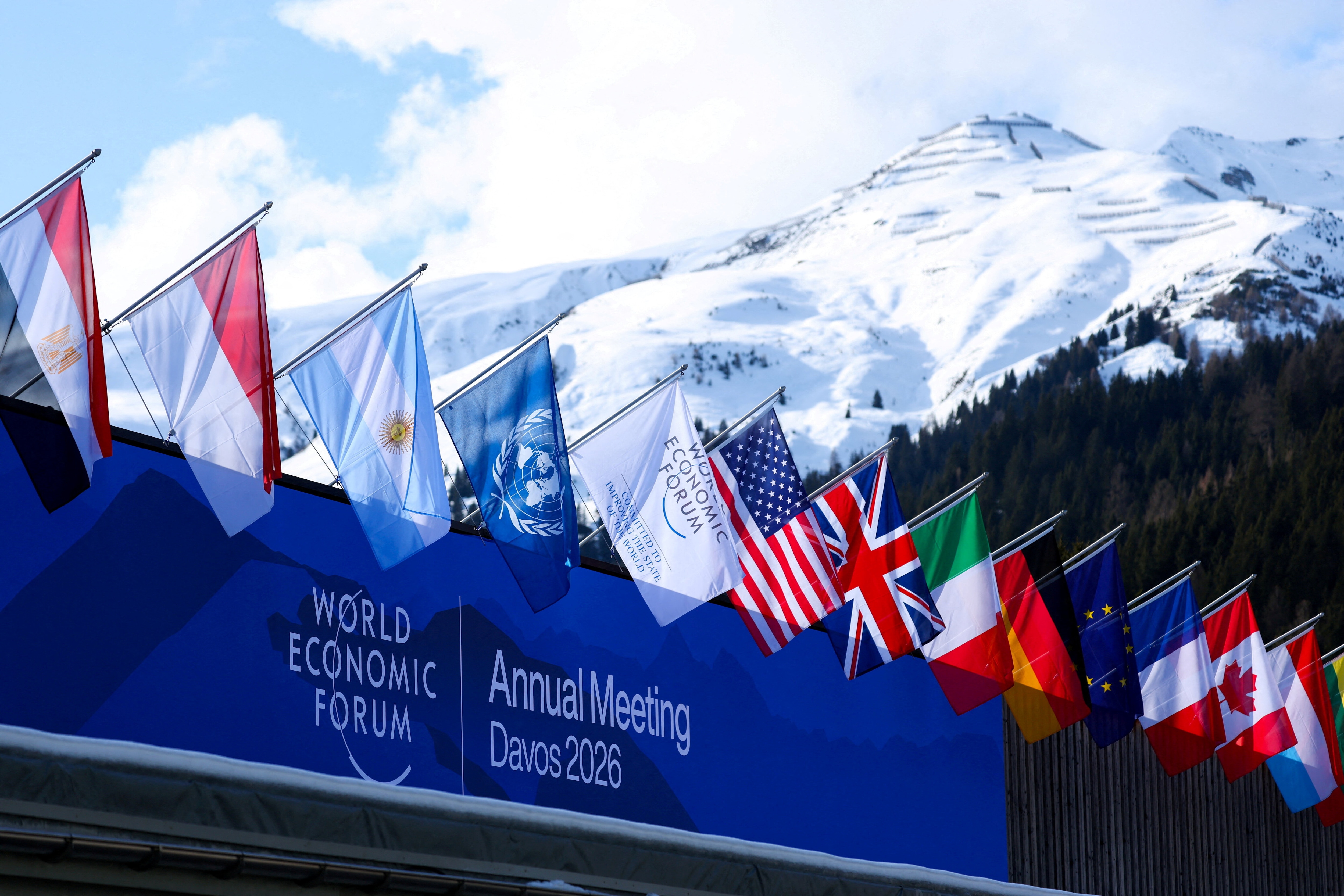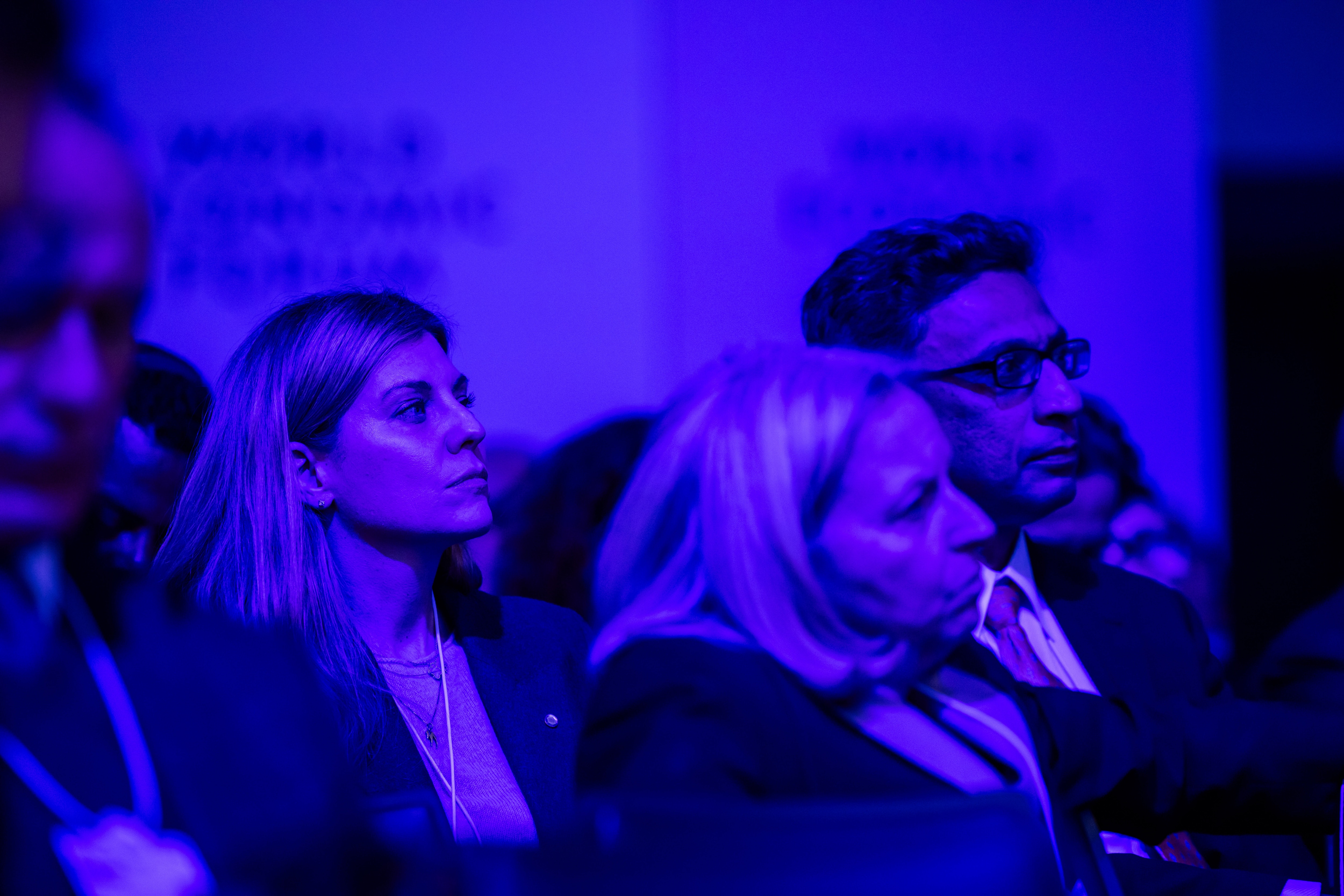How agency, foresight and the right narratives can create virtuous tipping points

With the right narrative, movements can create virtuous tipping points far more easily than widely believed.With the right narrative, movements can create virtuous tipping points far more easily than widely believed. Image: Getty Images/iStockphoto
- Too many efforts to mobilize collective action rely on negative narratives.
- A more effective approach would be to embed a sense of agency and action in people in pursuit of realistic goals.
- With the right narrative, movements can create virtuous tipping points far more easily than widely believed.
Many efforts to mobilize collective action on the world’s interconnected crises rely on narratives that emphasize a bleak future if we fail to act. Yet, we often under-emphasize the power of optimistic narratives – those that highlight informed opportunities to drive positive transformation.
Agency and storytelling are two tools that can help bridge this gap by creating impactful pathways toward transformative tipping points.
Uncertainty is a catalyst for agency
Charles Richard Snyder, a pioneer in positive psychology, identified two key factors that help us toward our goals:
● Pathways: The ability to generate different pathways, or desired scenarios.
● Agency: The ability to actually follow these pathways.

Perhaps counterintuitively, the uncertainty of the future enables our agency to explore these pathways. If everything were certain and thus predetermined, we would lack choice and power.
Jean-Paul Sartre articulated the human condition when he said “existence precedes essence,” meaning that agency emerges through choice. Applied to our own futures, it clearly follows that we must keep on choosing.
Understanding the limits of our vision doesn’t mean accepting them. Agency is our ability to take action and influence outcomes. Ultimately, all of our actions are driven by our choices. But this agency is like an “option.” If you don’t exercise it, it won’t exist – and others will shape your future for you.
To drive change, we must first regain the confidence that we have agency; that we are builders and makers. From there, we amplify that passion and share it with others. Passion is naturally contagious, so we can collectively harness our agency to co-create meaningful change, especially through the stories that we tell.

The true power of storytelling
Narratives have the power to shape the futures and create virtuous tipping points. In the Stockdale Paradox, neither excessive optimism nor pessimism leads to survival. Instead, those who embrace an optimistic yet realistic mindset are best positioned to thrive.
This is the duality of informed optimism: acknowledging the hard truths of our current realities, while holding the collective agency to shift our trajectories. The highest opportunity of our time is choosing how we respond to our challenges, which is predicated on our visions of the future.
Visioning involves imagining possible futures and exercising the agency to develop, communicate and realize our preferred future. Visioning is aspirational. It stretches beyond the limits of our perceived reality, positioning us on the other side of change’s boundaries. Today’s “wicked problems” leave no room for a failure of imagination.
Storytellers craft aspirational visions of the futures and pathways to realize them. Storytelling goes beyond merely conveying information; it builds connections and inspires action.
Research by neuroeconomist Paul Zak revealed that a neurochemical called oxytocin is produced when trust and kindness are present, and it motivates individuals to cooperate. The right stories stimulate oxytocin production, enhancing empathy and forging stronger bonds.
Virtuous tipping points for sustainable futures
Achieving sustainable futures requires humanity to address complex, systemic risks such as climate change. This calls for a deeper understanding of systems-level change – moving beyond surface-level solutions to trigger beneficial tipping points.
Inflection points occur when small changes combine to create large shifts. For example, in social conventions, a tipping point can arise when a minority viewpoint gains enough momentum. Research suggests that around 25% of people need to take a stand before this shift leads to large-scale societal change.
Because these changes are nonlinear, the early stages can appear slow, then they suddenly accelerate. In the context of climate change, self-reinforcing technologies and collective actions can catalyze the adoption of low-carbon solutions. Here, virtuous tipping points are within reach if effective narratives and initiatives converge.
The case of Brazil: From narratives to tipping points
Voluntary carbon markets (VCMs) are a growing market-based mechanism to achieve decarbonization by creating carbon credits via offset methods. Brazil has significant potential to lead the world in carbon credit markets, thanks to its vast size and biodiversity. According to BloombergNEF, the country could offset up to 30.5 billion metric tons of carbon dioxide by 2050.
While promising, VCMs are not without challenges. Most critically, carbon credits do not necessarily lead to direct emissions reductions. To be effective, offsets must meet the standard of additionality: the assurance that the emissions reduction would not have occurred without the offset. This is a fundamental characteristic of carbon credit integrity.
At the forefront of transforming Brazil’s markets is LuxCS, the first Brazilian VCM certifier. LuxCS is reshaping carbon offsetting in Brazil by focusing on narratives and protocols that foster trust, accountability and environmental integrity.
In collaboration with climate foresight practice Techistential and the Disruptive Futures Institute, LuxCS has spent years exploring pathways to transform the VCM landscape. This effort focuses on improving the perception and the effectiveness of carbon offset programmes using cultural, technical and regulatory levers. Through a commitment to conservation, performance, quality assurance and rigorous monitoring, LuxCS intends to strengthen market integrity while democratizing market access, ensuring that these systems work for all stakeholders – from local landowners to global buyers.
A key milestone in this journey is Brazil’s Bill 182/2024, pivotal legislation that represents a significant shift in the country’s regulatory framework for carbon markets. The bill, which was approved in November 2024 by both houses of Brazil’s National Congress, introduces stricter requirements for carbon credit integrity and additionality. These principles align directly with the standards that LuxCS has been advocating in its vision – a powerful step towards ensuring that Brazil’s carbon credits meet the highest standards of environmental integrity.
Agency, foresight and collective action
LuxCS’s vision, combined with Brazil’s evolving regulatory landscape, positions the country to play a leading role in global carbon markets. But realizing this vision will require concerted agency and continued collective action to drive a virtuous tipping point. Bill 182/2024 is just one part of the levers to transforming the global carbon markets – one where narratives, foresight and systems innovation must converge to create sustainable futures of higher integrity and broader participation.
Don't miss any update on this topic
Create a free account and access your personalized content collection with our latest publications and analyses.
License and Republishing
World Economic Forum articles may be republished in accordance with the Creative Commons Attribution-NonCommercial-NoDerivatives 4.0 International Public License, and in accordance with our Terms of Use.
The views expressed in this article are those of the author alone and not the World Economic Forum.
Stay up to date:
Strategic Foresight
Forum Stories newsletter
Bringing you weekly curated insights and analysis on the global issues that matter.
More on Global CooperationSee all
Yousif Yahya and Abir Ibrahim
January 29, 2026






